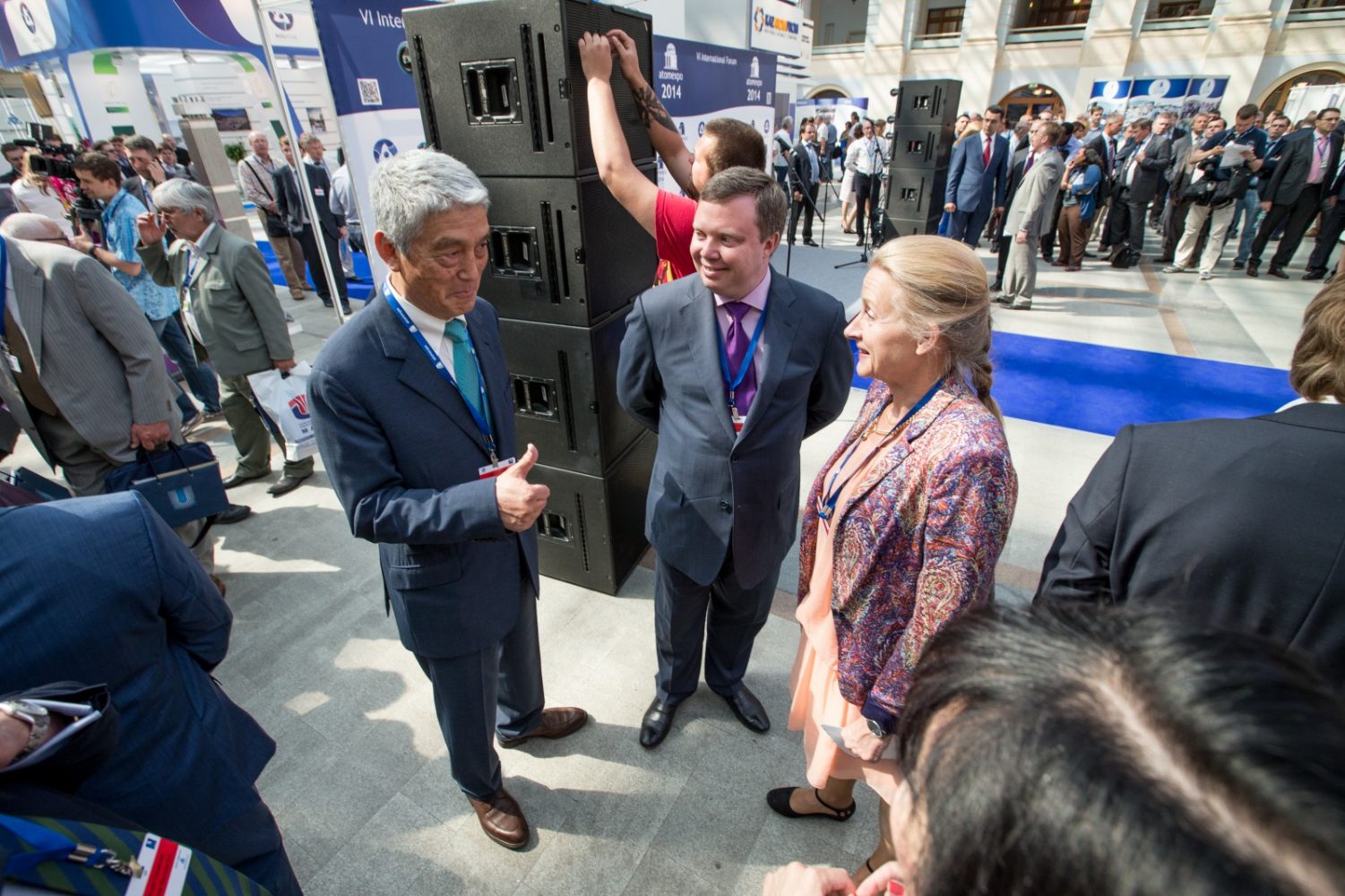This year the ATOMEXPO saw as many foreign guests as the last year event in St. Petersburg. The program was well-built and informative. It focused on the economics, the cost of a kilowatt-hour of nuclear electricity. Deputy CEO of ROSATOM Kirill Komarov is confident: the customer today is interested in the offer quality rather than a flag the technology bears. Besides, the issue of nuclear electricity cost given all expenditures –starting from the staff training through construction, operation, fuel costs and decommissioning – becomes ever more acute. “We have to learn how to calculate these figures; moreover, how to project them for long term. I remind, the state-of-the-art Russian design nuclear power plant are built bearing in mind their 60-year operation in standard mode,” Komarov emphasized. ROSATOM’s overseas business is growing. Following the 2013 results, its share approached 35 % of proceeds. The target is not less than 50% of the total volume, including not less than 25% of assets outside Russia, according to Komarov.
Economics as the cornerstone
The plenary session was the core event of the Forum. The focus was on not only nuclear safety. The issues of economics and competitiveness of nuclear build offers has been a recent trend. Votes of the plenary session participants demonstrated that today the potential NPP customers looked at the prime cost of produced electricity in new projects in the first place (this item was selected by nearly 60% of voters), and the integrated offer that included NPP support from construction until decommissioning (it was the priority for 33% of voters). Safety systems turned out to be more attractive than the two previous items just for 7.8% of votes; say yes, this outcome wouldn’t be likely in 2011.
“At ATOMEXPO-2013 the participants projected that shortly the Fukushima syndrome would disappear. Today it can be said that their scenario has come true, ROSATOM CEO Sergey Kirienko noted. “After Fukushima the safety requirements were a priority; they remain as such today and are not disputable. But today the commercial competitiveness has acquired ever more significance.”
According to Kirienko, recently, the customers have placed the focus not only on the safety of technologies but also on the cost of a kilowatt-hour of future nuclear electricity. “Just one-two years ago our partners asked how much a kilowatt of installed capacity would be, but today we hear more frequently: “this is not enough, we want to know how much a kilowatt-hour would be,” Sergey Kirienko emphasized. This requires higher responsibility in long term, which is not limited to bringing the nuclear reactor to power but embraces its entire life cycle.
A new epoch
The integrated offer for NPP construction is also at the foreground. Kirienko believes the epoch of EPC contracts (engineering, procurement, and construction) is sliding away. “Less and less customers are happy with an EPC tender, because the vendor takes too little responsibility,” Kirienko noted.
The same position was voiced by Fennovoima’s project director Minna Forsstrom who said that all investments in the nuclear sector should be commercially justified. One has to base on a price for a kilowatt-hour of generated electricity, she said. The market demands integrated solutions, which give an idea of capital costs, of what would happen with the project in long term, even if it is one hundred years, she continued. Nuclear power becomes a risky business without such guarantees, Forsstrom stresses, saying that nobody would invest in a project where there is no a clear market cost.
Some more details
Session participants (60.7%) expressed the opinion that a share of nuclear power in the world’s energy mix would grow by 2030. However, 30.8% of the participants believe it would stay where it is now. At the Forum several important documents on further cooperation were signed, including the memorandum on establishing a Nuclear Energy Information Center in Belarus, the memorandum of cooperation in the development of systems engineering and technologies for management and design of complex engineering facilities between the United Company NIAEP-ASE and IBM, as well as the memorandum of partnership for the cooperation in development of project management systems between the United Company NIAEP-ASE and Non-profit Partnership “Project Management Association SOVNET.”





